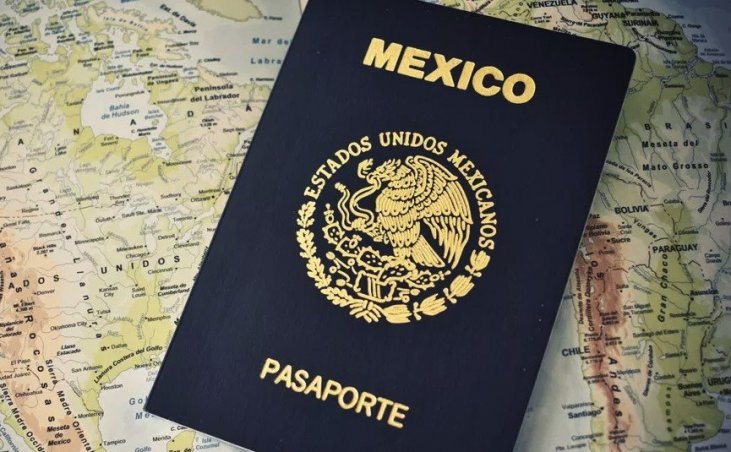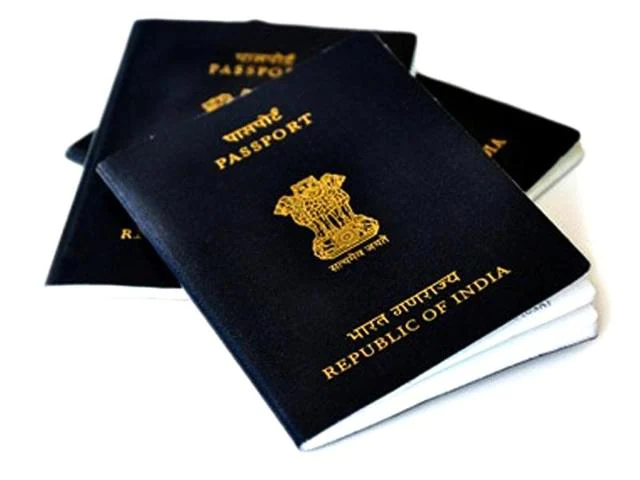Your Guide to Obtaining a Turkey Visa: A Step-by-Step Process for American Citizens
Are you dreaming of exploring the ancient wonders of Turkey, indulging in its rich culture, and savoring its mouthwatering cuisine? Well, fellow adventurers, look no further because we have got the ultimate guide for you! Whether you’re planning a thrilling solo trip or an unforgettable family vacation to this enchanting country, obtaining a Turkey visa is your first step towards unlocking a world of endless possibilities. In this comprehensive blog post, we will walk you through each stage of the application process specifically tailored for TURKEY VISA FOR AMERICAN CITIZENS. So grab your passport and let’s embark on this exciting journey together!
Introduction to the Turkey Visa:
Turkey, also known as the land of wonders, is a beautiful country that boasts a rich cultural heritage and stunning landscapes. From ancient historical sites to bustling modern cities, there is something for everyone in Turkey. If you are an American citizen planning to visit Turkey for tourism or business purposes, you will need to obtain a visa before your trip.
A Turkish visa is an official document issued by the Turkish government that allows foreign nationals to enter and stay in the country for a specific period. It is essential to have a valid visa before traveling to Turkey as it serves as proof of legitimate entry into the country.
Types of Turkish Visas:
There are several types of visas available for those wishing to travel to Turkey, including tourist visas, business visas, student visas, and work visas. The type of visa you need depends on your purpose of visit and duration of stay.
1. Tourist Visa: This type of visa is suitable for individuals who wish to visit Turkey for leisure or recreational purposes such as sightseeing or visiting friends and family. A tourist visa can be obtained for a single entry or multiple entries with a maximum validity period of 90 days within six months. HOW TO EXTEND TURKEY VISA
2. Business Visa: This type of visa is required if you plan on conducting business activities in Turkey such as attending conferences, meetings, or negotiating contracts. A business visa can also be obtained for single or multiple entries with a maximum validity period of 90 days within six months.
Why American Citizens Need a Visa for Turkey?
There are various reasons why American citizens need a visa to travel to Turkey. As a foreigner, it is important to understand the visa requirements and process for entering the country.
1. Legal Requirement:
One of the main reasons for needing a visa as an American citizen is that Turkey has strict immigration laws in place. All foreigners, including Americans, must have a valid visa to enter the country. This is in accordance with Turkish Law No. 6458 on Foreigners and International Protection and Regulation on Implementation of Law No. 6458.
2. Reciprocity:
Turkey requires visas from American citizens due to reciprocity, which means that each country imposes similar restrictions on visitors from other countries based on their own citizens’ treatment when traveling abroad. In this case, since Americans are required to obtain visas when visiting Turkey, Turkish citizens also need a visa when traveling to the United States.
3. Security Measures:
Turkey sees issuing visas as an important security measure in controlling who enters their country and preventing illegal activities such as human trafficking and terrorism. By having a strict visa process, they can ensure that all visitors have legitimate reasons for entering the country and pose no threat.
4. Controlling Overstays:
Another reason why American citizens need a visa for Turkey is to control overstays. A visa allows Turkish authorities to keep track of visitors’ entry and exit dates, making sure they do not overstay their permitted duration of stay.
Types of Visas Available for American Citizens
There are several types of visas available for American citizens who wish to travel to Turkey. Each type of visa has its own eligibility requirements and purposes, so it is important to carefully consider which one is most suitable for your specific travel plans.
1. Tourist Visa:
The tourist visa is the most commonly used type of visa for American citizens traveling to Turkey for tourism or leisure purposes. It allows visitors to stay in Turkey for up to 90 days within a 180-day period. This visa can be obtained online through the Turkish government’s e-Visa website or at a Turkish embassy or consulate in the United States.
2. Business Visa:
The business visa is designed for individuals who are traveling to Turkey for business-related activities such as attending conferences, meetings, or engaging in commercial transactions. Similar to the tourist visa, it also allows a maximum stay of 90 days within a 180-day period. However, this visa requires additional documentation such as an invitation letter from a Turkish company and proof of financial stability.
3. Student Visa:
American citizens who wish to study in Turkey must obtain a student visa before their arrival. This type of visa allows students to stay in Turkey for the duration of their studies, and it can be extended if necessary. To obtain a student visa, applicants must provide proof of enrollment at an accredited educational institution in Turkey and sufficient funds to cover their expenses during their stay.
Step-by-Step Guide to Obtaining a Turkey Visa
Obtaining a Turkey visa may seem like a daunting task, but with the right information and preparation, it can be a smooth and hassle-free process. In this section, we will outline the step-by-step guide for American citizens to obtain a Turkey visa.
Step 1: Determine your eligibility
The first step in obtaining a Turkey visa is to determine if you are eligible for one. As an American citizen, you are required to have a valid visa to enter Turkey. However, there are certain exemptions for citizens of some countries. You can check the official website of the Turkish Ministry of Foreign Affairs or contact your nearest Turkish embassy/consulate for more information on eligibility requirements.
Step 2: Gather the necessary documents
Once you have confirmed your eligibility, the next step is to gather all the necessary documents for your visa application. These typically include:
– A completed Visa Application Form: This form can be found online on the official website of Turkish consulates. Fill out all required fields accurately and honestly.
– Valid passport: Your passport must have at least six months’ validity beyond your intended stay in Turkey.
– Photographs: Two recent passport-size photographs with white background are required.
– Flight itinerary: You need to provide proof of your round-trip flight reservation or booking confirmation.
– Accommodation details: If you will be staying at a hotel or other accommodation during your trip, you need to provide proof of reservation or booking confirmation.
Determine your visa category and requirements
When planning to travel to Turkey, one of the most important steps in the visa application process is determining your visa category and understanding the requirements for it. This will ensure that you have all the necessary documents and information before submitting your application, saving you time and potential delays.
Turkey offers multiple visa categories for American citizens, depending on the purpose of their visit. These categories include tourist visas, business visas, student visas, work visas, and diplomatic/official visas. Each category has its own set of requirements and restrictions, so it is crucial to choose the right one that aligns with your travel plans.
To determine your visa category, start by considering the purpose of your visit to Turkey. If you are planning a vacation or a short-term trip for leisure or tourism purposes, then a tourist visa would be suitable. This type of visa allows travelers to stay in Turkey for up to 90 days within a 180-day period.
On the other hand, if you are traveling to Turkey for business-related activities such as meetings, conferences, or negotiations with local companies or clients, then a business visa would be required. Business visas also allow for a maximum stay of 90 days within six months but may require additional documentation such as an invitation letter from a Turkish company.
If you are planning on studying in Turkey for more than three months as an American citizen, then you will need to apply for a student visa.
Book an appointment at the nearest Turkish Embassy or Consulate
If you are an American citizen planning to travel to Turkey, one of the first and most important steps is obtaining a Turkey visa. To do so, you will need to book an appointment at the nearest Turkish Embassy or Consulate. This process may seem daunting, but with our step-by-step guide, you’ll have all the information you need to successfully book your appointment and obtain your Turkey visa.
1. Determine which embassy or consulate covers your state:
Before booking an appointment, it’s crucial to determine which Turkish Embassy or Consulate covers your state. The United States has several embassies and consulates located in different regions, each responsible for specific states. To find out which one you should contact, visit the Turkish Embassy website and look for a list of their locations in the US.
2. Schedule an online appointment:
Once you have determined which embassy or consulate is responsible for your state, visit their official website to schedule an online appointment. Most embassies and consulates allow applicants to schedule appointments through their online system.
3. Gather necessary documents:
Before booking an appointment, make sure you have all the required documents ready. These typically include a valid passport with at least six months of remaining validity from the date of entry into Turkey, a completed visa application form (available on the embassy’s website), a recent passport-size photo, flight itinerary or reservation details, proof of accommodation in Turkey (hotel reservations or invitation letter from family/friends), and proof of financial means (bank statements).






